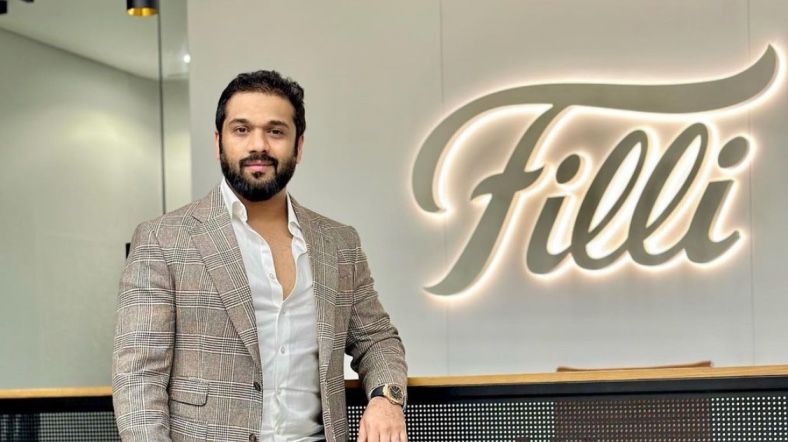The Chai Master, Mr. Rafih Filli – CEO of FiLLi Cafe
Mr Rafih FiLLi is a fun loving person and enjoyed being in the company of his friends. The history of the name FiLLi traces back to his school days, where his friends gave Mr Rafih the title FiLLi. Little did anyone know that this name given for the sake of fun would one day lead to the establishment of FiLLi. The signature FiLLi Zafran Tea is a result of his own determination to introduce a specialty tea that people would love.
Today, this chaiwala owns many outlets, under the brand ‘Filli Cafe’ spread across 6 countries, enjoying a significant presence in UAE. But the journey to brew the crowd puller was an arduous task with Filli saying that the taste only caught on gradually. “I just experimented with a tea bag and gave it to the regulars, and they liked it.” After seeing the beverage gain popularity among his usual customers, Filli stepped up its promotion among his clientele, surviving purely on word of mouth. Filli’s concept of refining and repackaging the traditional tea worked. The entrepreneur has struck a chord with the local market as he has unearthed a horde of tea lovers in the UAE, a market that was traditionally thought to be dominated by coffee drinkers. Growth has been steady for Filli who opened his second store in Dubai’s Mankhool area in 2008. The home-grown chain aims to have at least, 127 stores in the UAE by 2025. Source link
Who would have thought a nondescript cafeteria in Al Mamzar would one day become an international brand? Sounds incredible, but that is the story of Filli café which now has 27 outlets in the UAE, three in India, and one soon to open in London.
Abdul Rafih, 35, owner of the café chain, says he was working with a well-known FMCG company in 2003 but absolutely detested the hour-long commute to Jebel Ali from his house in Al Mamzar.
“I decided to quit my job and look after my father’s cafeteria, known as Al Zumalaa then, as I was fed up of Dubai-Sharjah traffic,” says Rafih as he looks back on the decision which many had termed as “rash” and “stupid” then.
“Apart from my father, everyone said I was setting myself up for failure. My father said, ‘do what you like’,” says Rafih.
Karak to Zaffran
Soon after he took over the business, he introduced a range of sandwiches and tea blends. “People would come to buy the karak chai, but I started giving them my favourite ‘zaffran’ tea as a sampler,” he says. He recalls experimenting with saffron in the karak chai and thinking it might become a hit. “Gradually, Karak fans started asking for the zaffran tea which we used to sell at Dh2. They didn’t mind paying an extra Dh1.50 for a better experience,” says the entrepreneur who hails from Kerala in South India. The saffron tea is now priced Dh6.
Rafih says a phone call from the Dubai Municipality in 2004 changed his life. “One of the customers had filed a complaint, saying we are selling a basic commodity at more than twice the price,” he recalls. “I told the officers, it’s not same as the karak chai. They wanted to see how “different’ it was and asked me to bring some for them,” he says with a smile. According to Rafih, they not only liked the tea but also thought the price was reasonable.
“I decided to copyright the name – “Filli” tea, and serve it through a full-fledged franchise – something like Starbucks for tea,” he says.
He then set up the Mankhool branch, marking a shift from a 250 square metre cafeteria to a 2,000 square metre eatery. “The rest as you see is history,” says Rafih, who claims to have served the tea even to the ruling family.
Today, nearly 50,000 cups of Filli tea are sold every day in the UAE.
The chain has two franchised branches in Bahrain and will soon be opening more outlets in the rest of the GCC. The future plan, as Rafih points out, is to open 100 more cafés in the UAE and 200 across the globe in the next five years.
“More than anything, it’s luck and the Almighty’s grace that worked for me,” he says with modesty as he sips his Filli tea.
Follow him on Instagram for more.





